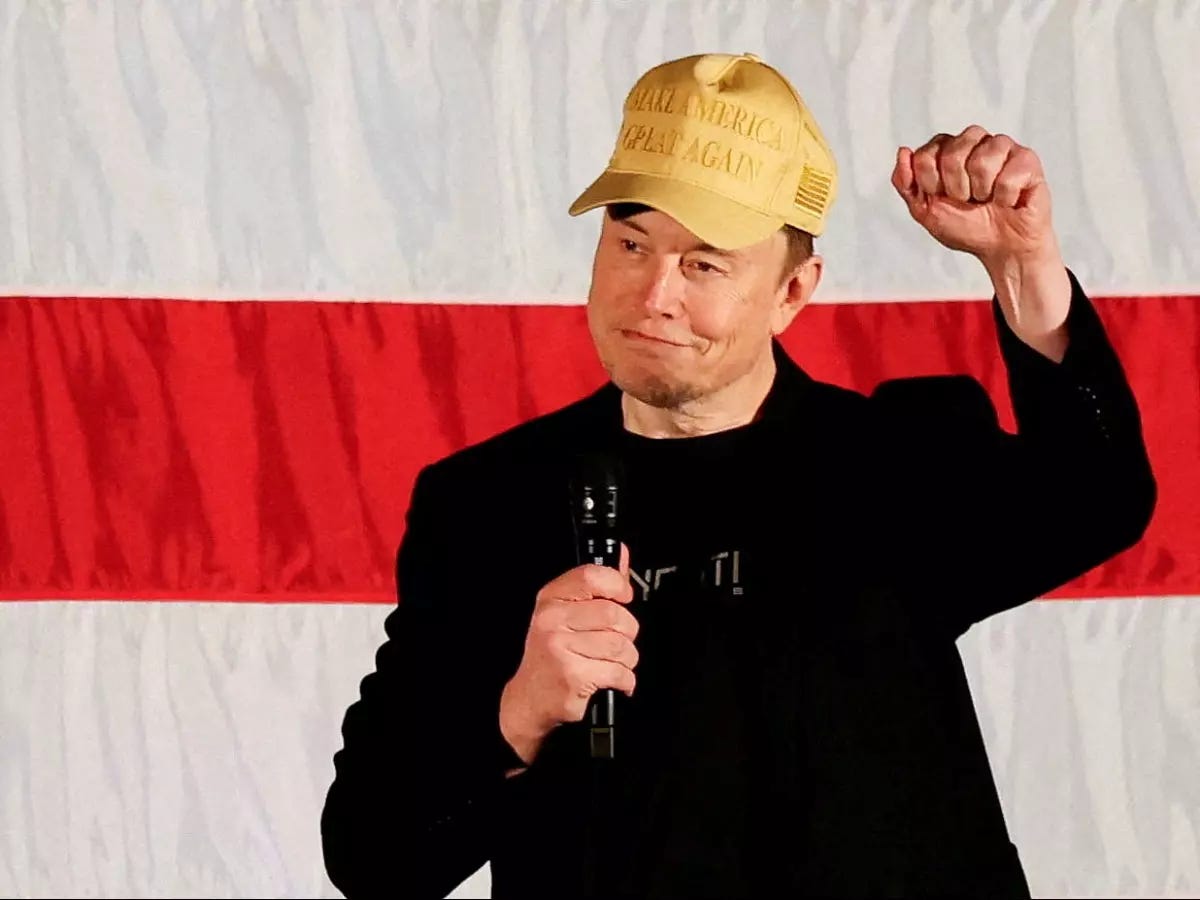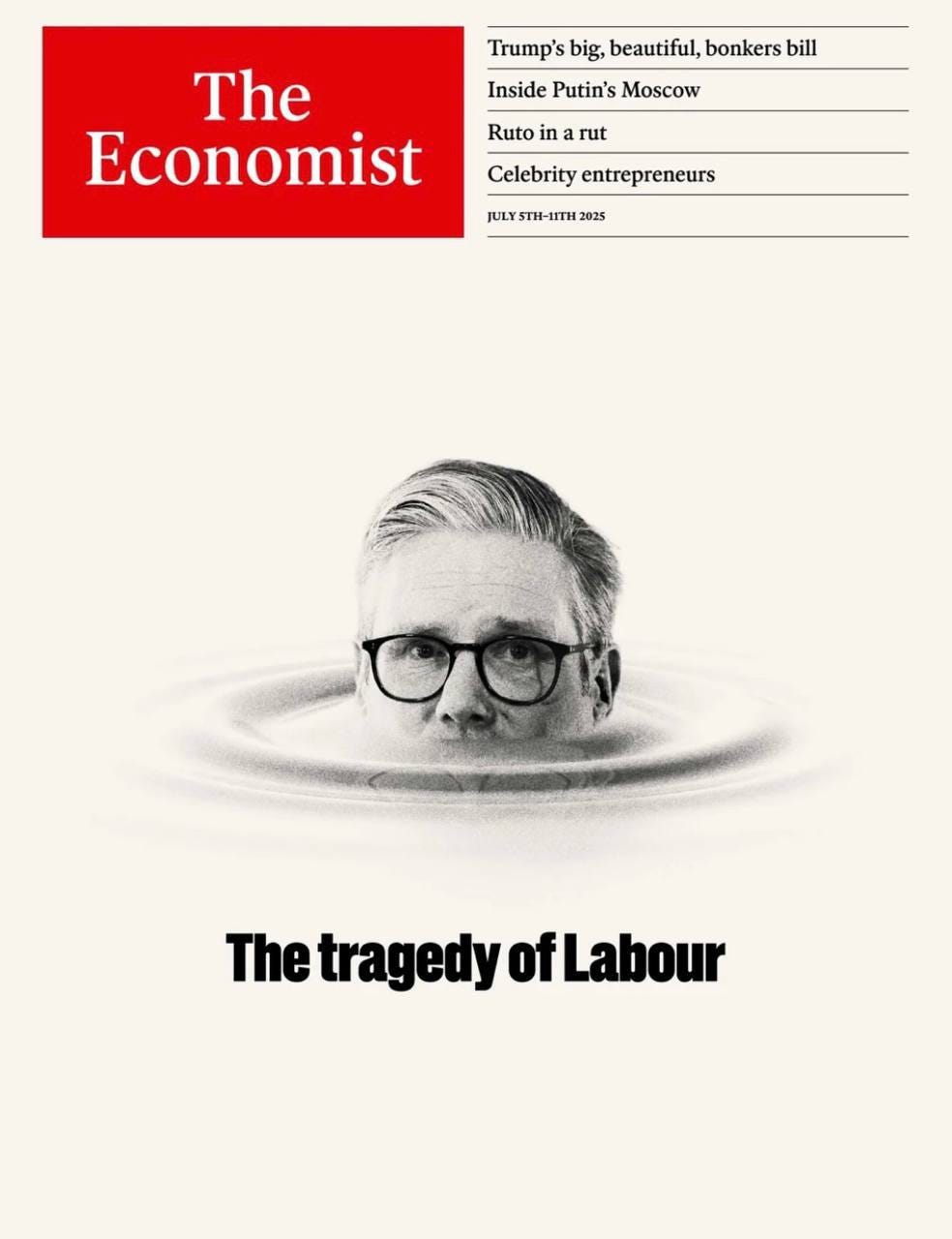From Mars to Midterms: Musk Launches Party, Forgets Blueprint
After ghosting Trump over the “big beautiful bill,” Elon Musk declares his own political party—with plenty of hype but few details, and zero legal infrastructure.
Elon Musk declared the launch of his new political party on Saturday, a project he has repeatedly floated in the weeks since his explosive breakup with President Donald Trump — but provided no details as to how he planned to jump through the hoops necessary to establish a viable alternative. The billionaire entrepreneur and onetime Republican megadonor — who mere months ago appeared as the president’s right-hand man in the Oval Office after pouring millions into his campaign — has for weeks publicly contemplated starting a new third party to disrupt the current system. Musk’s third-party musings began in earnest after last month’s massive meltdown between the president and his former adviser over the “big beautiful bill,” which the former DOGE head has decried as wasteful. As Trump on Thursday flaunted his successful push to muscle the Republican megabill through Congress this week, Musk sought to drum up support for his potential third party launch, positing that his new party would target a handful of vulnerable swing seats to leverage political power. While Musk may have the millions to pour into backing certain candidates — which he has already promised to do, pledging to support Rep. Thomas Massie’s (R-Ky.) reelection campaign amid targeting from Trump — establishing a third party involves a series of thorny obstacles including navigating complex state laws, ballot access regulations and other legal hoops - Politico
Israeli airstrikes killed at least 38 Palestinians in Gaza, hospital officials said on Sunday, as Israel was sending a ceasefire negotiating team to Qatar ahead of Prime Minister Benjamin Netanyahu ‘s White House visit for talks toward a deal. U.S. President Donald Trump, who will meet with Netanyahu on Monday, has floated a plan for an initial 60-day ceasefire that would include a partial release of hostages held by Hamas in exchange for an increase in humanitarian supplies allowed into Gaza. The proposed truce calls for talks on ending the 21-month war altogether. Separately, an Israeli official said the security Cabinet late Saturday approved sending aid into northern Gaza, where civilians suffer from acute food shortages- AP
Regarding the above mentioned visit of Netanyahu to Washington, here’s how my Jerusalem-based friend, Dr. Leora Lider, framed pre-departure preparations….
The Royal Family, that is Bibi Netanyahu, HRH Sara (the First Lady) and the Prince of Perv Yair Netanyahu (their son), were meant to travel from Ben Gurion Airport at 16:00 tonight, Sunday, and because of certain demands and expectations of HRH Sara, the departure time has now been moved to 18:30. Maybe they kicked a journalist off the plane, to make space for her stylist. HRH Sara has already received one gift, with her husband firing his spokesman, Omer Dostri, because of a series of supposed conflicts with her Majesty. Sara’s involvement in the appointments of high-ranking officials has been widely reported, however, the Office of the Prime Minister was quick to clarify that she had anything to do with Dostri’s departure. “The decision to terminate his employment was made in coordination between the Prime Minister, his Chief of Staff, and Dostri…“the media is quick to turn Mrs. Netanyahu into its punching bag whenever it can.” Coincidentally, Dostri’s likely replacement, Ziv Agmon, is very close to Sara and a staunch Likud loyalist. This will be Yair Netanyahu’s third flight in the VIP section of Wing of Zion, the official Israeli diplomatic plane that the Royal Family uses as their personal international taxi service. The minimum price for a premium ticket on an Israeli airline, for a flight to New York, costs $2500. Yair will be flying in what is considered First Class Plus, and has assured the public that he/his family paid for his ticket. You will excuse my skepticism, the Netanyahu family is not known for its transparency or its truthfulness.
Iran’s supreme leader, Ayatollah Ali Khamenei, made his first public appearance since the start of the 12-day war with Israel, in which several leading Iranian political, military, and scientific leaders were struck in targeted killings by the Israeli military. Iranian State TV on July 5 showed Khamenei waving to a chanting crowd as he entered a mosque located next to his residence in Tehran. Khamenei attended ceremonies marking Ashura, an important Islamic day of commemoration, although state media it said he did not make a speech at the event. Others at the event spoke of "resistance" to attacks and that Iran "would never surrender," echoing remarks made earlier by Khamenei, state media reported. Khamenei, 86, once the omnipresent face of the Islamic republic, retreated into near-total seclusion during the war launched on June 13 by Israel amid reports that he was on Israel's hit list. His only appearances -- a pair of video statements, the second apparently filmed in a bunker with downgraded production quality -- did little to reassure the nation - RFE/RL
U.S. arms shipments to Ukraine were halted not due to shortages — but by the personal decision of the Pentagon chief, NBC reports. The pause in military aid to Kyiv was the result of a personal decision by U.S. Defense Secretary Pete Hegseth and his deputy Elbridge Colby — not because of any critical shortage of munitions. Elbridge Colby has long advocated for reducing U.S. involvement in the Ukraine war and shifting focus to countering China in the Indo-Pacific region. This suggests that the suspension of aid was a political move, not one driven by logistics or lack of resources - Nexta
EU Bows to Farmer Pressure, Slaps Wartime Ukraine with Grain Quotas — A Blow to an Ally Fighting for Survival
The European Union will cut imports of Ukrainian wheat and sugar by up to 80% to address the concerns of its farmers, according to quotas announced on Friday, that are likely to drive Ukraine growers to sell more to markets in Asia and Africa. In a show of solidarity following the start of the Ukraine war in 2022, the EU opened up its food markets and temporarily waived duties and quotas. But as farmers across the bloc protested against a flood of cereals, sugar and poultry from Ukraine, Brussels moved to re-introduce the quotas. Traders say Ukraine has defied expectations by continuing to ship large volumes of grain via the Black Sea, but the war shows no sign of ending and Western support has faltered. The quotas announced on Friday will be higher than those in the first free trade agreement between the EU and Ukraine in force since 2016, but significantly below the volumes imported over the last three years duty-free. They follow a provisional deal reached on Monday and set the annual quota for wheat at 1.3 million metric tons, a 30% rise from pre-war levels of 1 million tons, a senior EU official said on Friday. It represents a drop of 70-80% from the last three seasons, when the EU imported around 4.5 million tons of Ukrainian wheat in the 2024/25 season to June 30, 6.5 million tons in 2023/24 and 6.1 million tons in 2022/23, according to Commission data - Reuters
My comment: The announcement of the grain quota cut came as EU Commission President Ursula von der Leyen visited neighbouring Moldova for the bloc’s first-ever summit there. Her decision not to visit Ukraine speaks volumes about how Brussels is treating an ally fighting on the front lines of Europe's security. Equally troubling is that the new trade agreement allows individual EU member states to impose additional protective measures if Ukrainian imports are deemed to disrupt domestic markets—handing them a powerful tool to further restrict wartime trade with Kyiv.
While President Donald Trump was once predictable for world leaders, one international security expert explained that the persuasion-through-flattery method no longer appears to be working. Michael Bociurkiw, an Atlantic Council fellow and former spokesperson for the Organization for Security and Cooperation in Europe, told CNN’s Brianna Keilar on Friday that the president is now more erratic on foreign policy. "As you all know better in the United States than I do, Trump can say one thing one minute and actually do something [different] the next. So it's very, very difficult to track his intentions," he said from Odesa, Ukraine. "I do believe that after watching Prime Minister Mark Carney of Canada, Keir Starmer in the U.K., that buttering up Mr. Trump just doesn't do it anymore," he continued. It "could be that if the aid does not come, that is promised from the United States, that Ukraine has to take a different tack, perhaps send a pitbull ambassador to Washington to push things along. That's what Mr. Trump seems to respect most, is people who are thugs, you know, who are tough on him, but not people who say yes or are nice all the time." Trump had a call with Russian President Vladimir Putin that left him, telling reporters he was "not happy" with the world leader (summary by The Raw Story)
As global temperatures continue to rise, European cities are experiencing extreme heat for far longer than the traditional summer months. Some cities in Europe now endure high temperatures for up to five months a year, a new study by Climate Resilience for All claims. They found that so-called ‘heat seasons’ are no longer confined to the recognised summer months and are now much longer in duration. On average, the team, led by climate scientist Dr Larry Kalkstein, say that heat seasons last for 214 days across the cities they looked at. The study says that Athens in Greece now faces one of the longest heat seasons on the continent, with high temperatures lasting around 145 days, from mid-May to early October. Tirana, Albania’s capital, comes in a close second on Climate Resilience for All’s list with 143 days of extreme heat - Euronews
The BRICS Summit got underway in Brazil today - however there were some notable no-shows. View my explainer video to learn more…..
Roughly 1.8 billion consumers have used AI tools, a third of whom do so daily. But almost all of them are using the products for free, according to a report from Menlo Ventures released Thursday. That leaves a huge amount of untapped revenue for AI companies that must pay off hundreds of billions in capital expenditures to build out their AI footprints. There are a few avenues they can tap to convert users, said Menlo’s Shawn Carolan, who invests in consumer tech. Developing assisted memory features — as well as the ability for AI to access accounts and conduct transactions on a user’s behalf — makes premium subscriptions more attractive to individuals who might otherwise switch products when they run out of free credits. Menlo’s estimates assume that if the 1.8 billion AI users paid a $20 average monthly subscription, the market should be $432 billion — not today’s $12 billion, or 3% of the total. “But I think the biggest opportunity is: How do you continue to have the service be free for the end user, and monetize it in alternative ways?” he said. Affiliate fees and targeted advertisements are the answer here — the latter of which he said “can be way better” with AI due to the level of specificity users search with and the historical data tech companies have on their users - Semafor
ITA Airways of Italy has announced that all its incoming and outgoing flights to Tel Aviv have been suspended with immediate effect until August 31. ITA Airways had had plans to resume its operations to the region on August 1 but was compelled to re-think in the wake of recent developments. The move makes ITA Airways part of an increasing number of airlines in the world to suspend their operations to and from Israel as security tension in the region continues to escalate. The decision comes as airlines, following guidelines issued by various national governments and international aviation authorities, assess the ongoing situation in Israel. In recent months, concerns over the safety of airline passengers have prompted many operators to reevaluate their routes, particularly to regions experiencing heightened instability. While ITA Airways has not directly cited specific incidents, the airline’s suspension aligns with a broader trend seen in the aviation industry as tensions continue to unfold.





